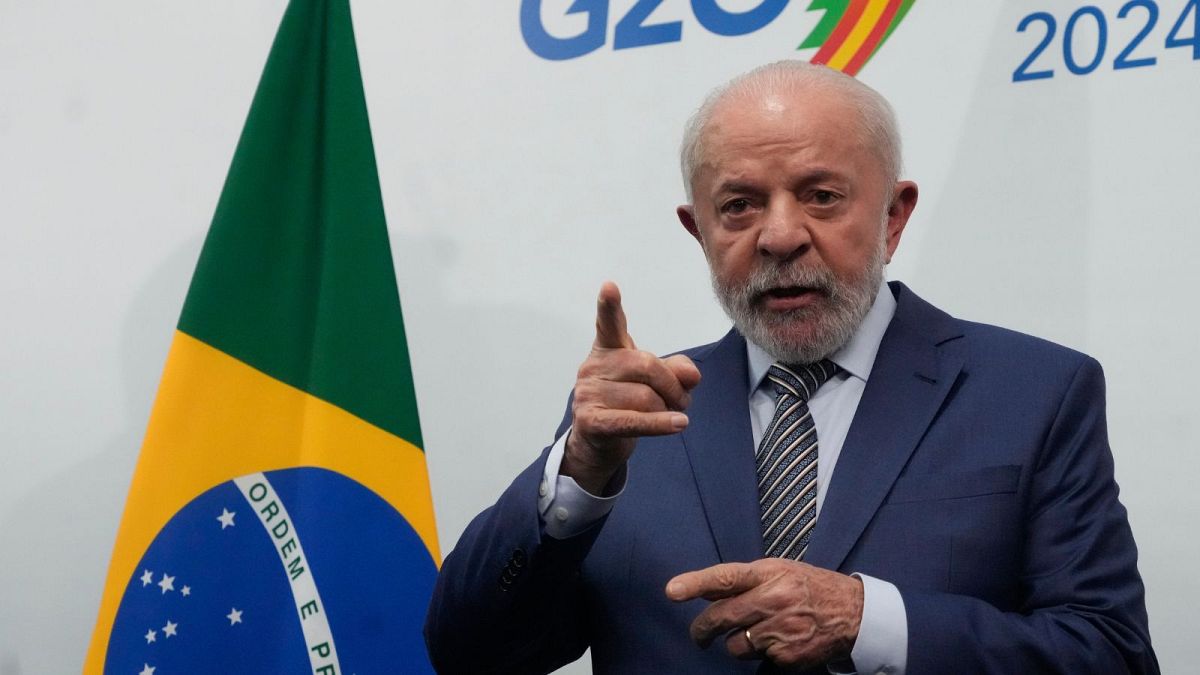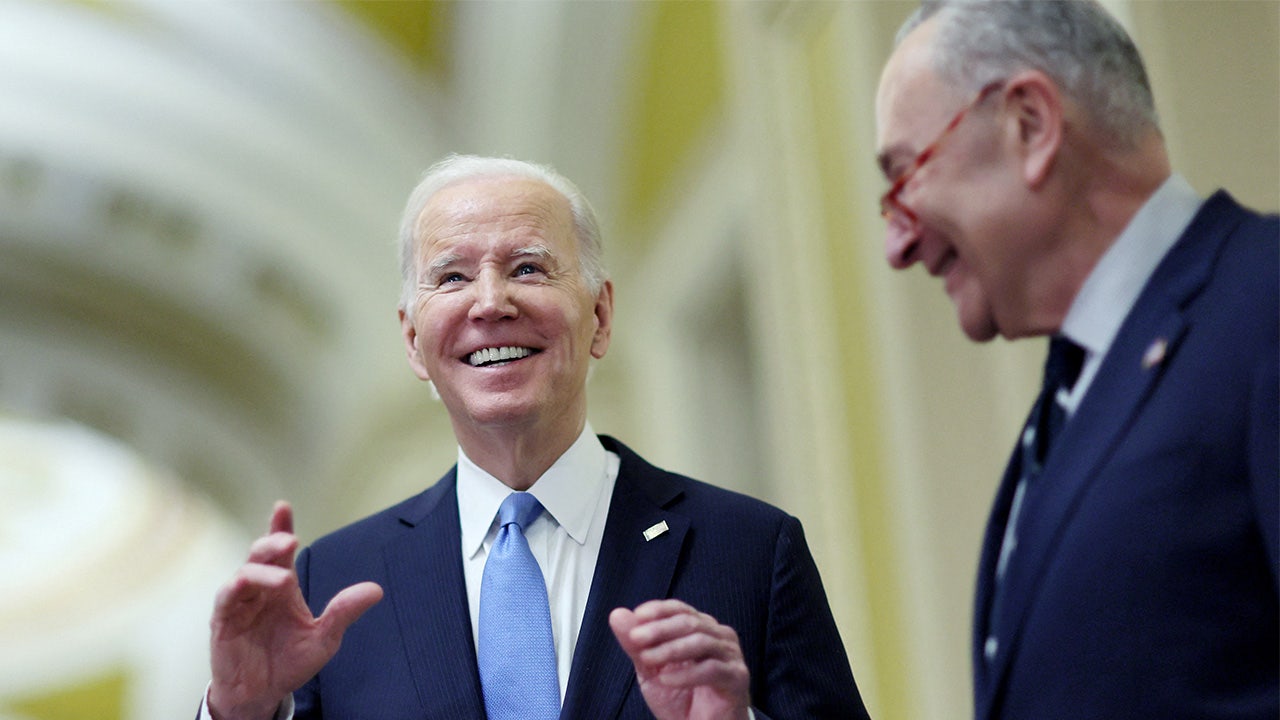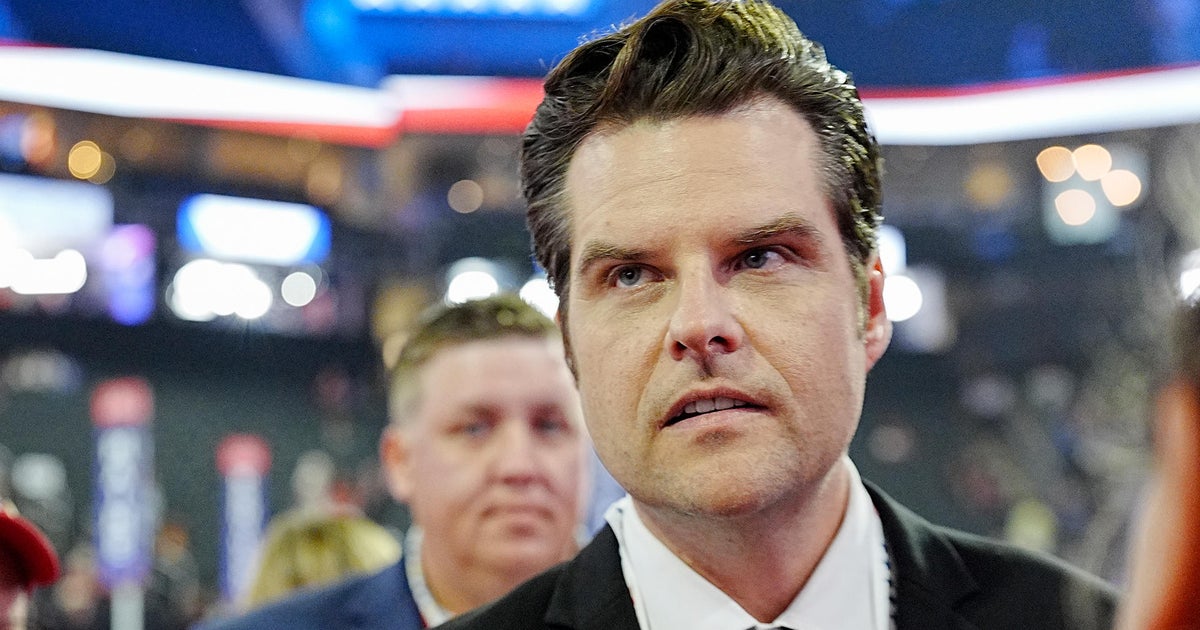World
EU warns China it will ‘not tolerate’ unfair competition at summit
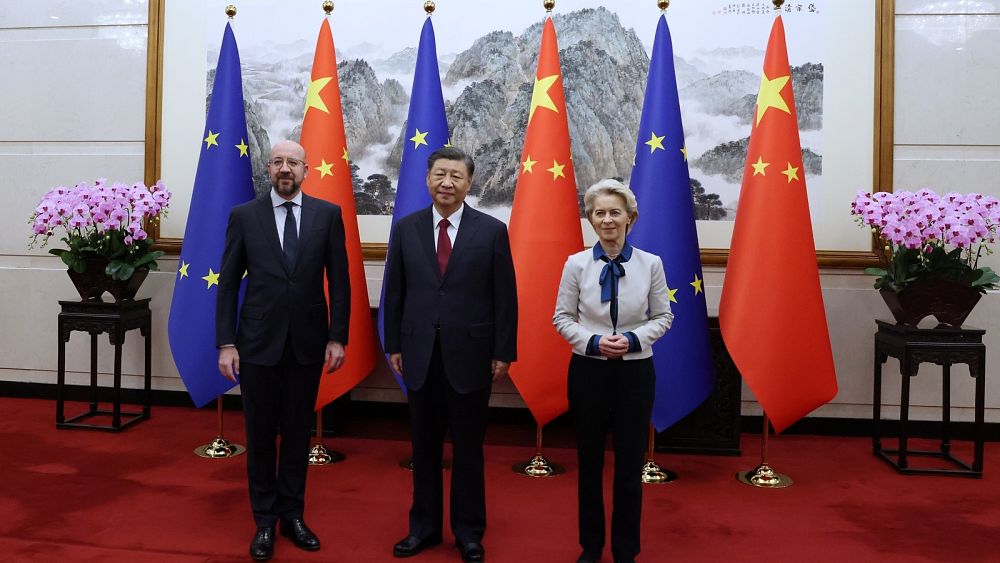
European leaders will “not be able to tolerate that our industrial base is undermined by unfair competition,” Ursula von der Leyen warned on Thursday after a highly anticipated meeting with Chinese President Xi Jinping.
“Competition needs to be fair. We insist on fair competition within the single market, therefore we also insist on fair competition from companies that come to our single market,” the European Commission president told reporters in Beijing.
Her warning came following the first in-person meeting between EU leaders and President Xi in over four years. But despite the high stakes of the summit, happening amidst heightened geopolitical tensions and an increasingly fraught trade relationship, no new commitments emerged from either side.
The EU is concerned that Beijing’s import restrictions and generous subsidies for China-based firms are putting European companies at an unfair disadvantage, inflating the bloc’s massive trade deficit with Beijing.
The Asian giant is the EU’s biggest trading partner, with trade in goods amounting to a staggering €2.3 billion every day.
But EU imports from China now exceed its exports by almost €400 billion. This deficit has grown tenfold in the past 20 years and doubled over the past two years. According to von der Leyen, “such imbalances are just unsustainable.”
“I’m glad that we agreed with President Xi that trade should be balanced between the two of us,” she added.
Discussions on redressing trade imbalances with Chinese Prime Minister Li Qiang were in-depth and delved down into the facts and figures, von der Leyen said, although no concrete measures to address the imbalances immediately emerged from the meeting.
“We expect China to take more concrete action to improve market access and the investment environment for foreign companies,” European Council President Charles Michel, also present at the meeting, said.
According to Chinese state television, Premier Li had told both EU leaders that China opposes the “politicisation” of economic and trade ties.
The EU has adopted a ‘de-risking’ approach amid fears that its entrenched reliance on China for critical materials used in cleantech applications could erode its industries and jeopardize its security.
This means using the EU’s trade and domestic defence tools, such as its ongoing anti-subsidy probe into low-cost China-made electric cars that are flooding the EU market.
Von der Leyen insisted de-risking is not “exclusive to China” and highlighted that Beijing’s so-called self-reliance strategy is similar to the EU’s plan. She also emphasised the bloc was not looking to de-couple its economy from China’s as it has done from Russia’s in the aftermath of the invasion of Ukraine.
For Grzegorz Stec, an analyst from Chinese-sanctioned think-tank MERICS, the summit may not have delivered on much, but it has set the tone for relations going forward.
“There wasn’t really that much that has come out of the summit in terms of concrete deliverables, but in terms of framing the relationship going forward, it was a very meaningful exchange,” Stec said in an interview with Euronews.
“Why I think this exchange was meaningful is that it seemed that the EU has put on the table the fact that it really wants China to engage constructively, and if not, it’s going to take action, which is, let’s say the way that it was framed was assertive, not confrontational, because the European side was also pointing out the constructive aspects of the relationship that are already there.
“But it’s very much a signal that the EU side is expecting action to happen soon. On the Chinese side, if not, then our relationship might get a little bit more complex in terms of European responses.”
He added that this action could mean many things.
“Brussels now has an increasing portfolio of tools that are being put in place under the EU’s economic security agenda and the idea of de-risking.
“So, this is a plethora of tools that are being introduced on the EU level and here we have to take a look beyond issues that are more political, such as, for example, anti-coercion instruments.
“Other issues might include more investigations like the one that we’ve seen towards EVs, towards pet products, and also a number of other issues that are being put on the table on the European side.”
Ukraine, Gaza and Taiwan on the agenda
Both von der Leyen and Michel used their trip to urge Xi to do more to crack down on sanctions circumvention, where Chinese firms are suspected of indirectly feeding the Kremlin’s war campaign in Ukraine.
The bloc suspects that everyday products – including those made in the EU – that include components needed to manufacture drones, missiles and artillery shells are being re-exported to Russia through China.
Member states have been pushing to include sanctions on Chinese companies suspected of facilitating sanctions circumvention in the EU’s 12th package of sanctions, currently under negotiation.
A senior EU official said that while the overall export of high-priority battlefield items from China to Russia has declined, the latest data suggests exports of so-called ‘dual-use goods’ that could be redirected for military purposes are on the rise.
According to Michel, the EU has identified a list of companies “suspected of playing a role in circumventing sanctions.”
Von der Leyen said that China’s position on the war in Ukraine will “also define” EU-China relations. China has taken a neutral stance on the war and proposed a 12-point peace plan for Ukraine in March this year, but has refrained from severing ties with Putin.
“It is possible that we’re going to see some response on the Chinese side in the context of specific cases of specific companies providing specific goods, while China is in the mode of re-engagement with other actors,” MERICS analyst Stec told Euronews.
“But in terms of China changing its overall position in the context of the Russian invasion of Ukraine, this I would personally say is highly unlikely given the fact that China frames and sees the Russian invasion of Ukraine through the lens of its own competition with the United States and treated as a part of a wider geopolitical outlook.”
Leaders also broached the thorny issue of the ongoing war in the Middle East and the complex path to lasting peace in the region.
“We agree that getting lifesaving aid to the most vulnerable must be a top priority,” Michel said.
The EU is the biggest donor of aid to the Palestinian territories and has quadrupled its humanitarian aid to €100 million this year in response to the crisis engulfing the Gaza Strip. China’s response fades in comparison, offering $2 million (€1.86 million) in additional humanitarian assistance since the conflict erupted in October.
A senior EU official said that the summit was an opportunity for von der Leyen and Michel to put pressure on China to scale up its humanitarian response.
The two EU leaders, who were accompanied by the bloc’s top diplomat Josep Borrell, also expressed their concerns about the tensions in the Taiwan Strait and the South China Sea.
The bloc and its Western counterparts oppose any change to the “status quo” in Taiwan, a democratically self-ruled island that China considers a breakaway province that should be reunited with the mainland.
Increased military activity in the Taiwan Strait and the precedent set by Putin in Ukraine has raised the alarm in Europe over a potential escalation in Taiwan. But the European and Chinese positions remain far apart.

World
Jon Hamm’s Your Friends & Neighbors Renewed at Apple TV+ Ahead of Series Premiere — Get Release Date

ad
World
Israel keeping its ‘eyes open’ for Iranian attacks during Trump transition period, ambassador says
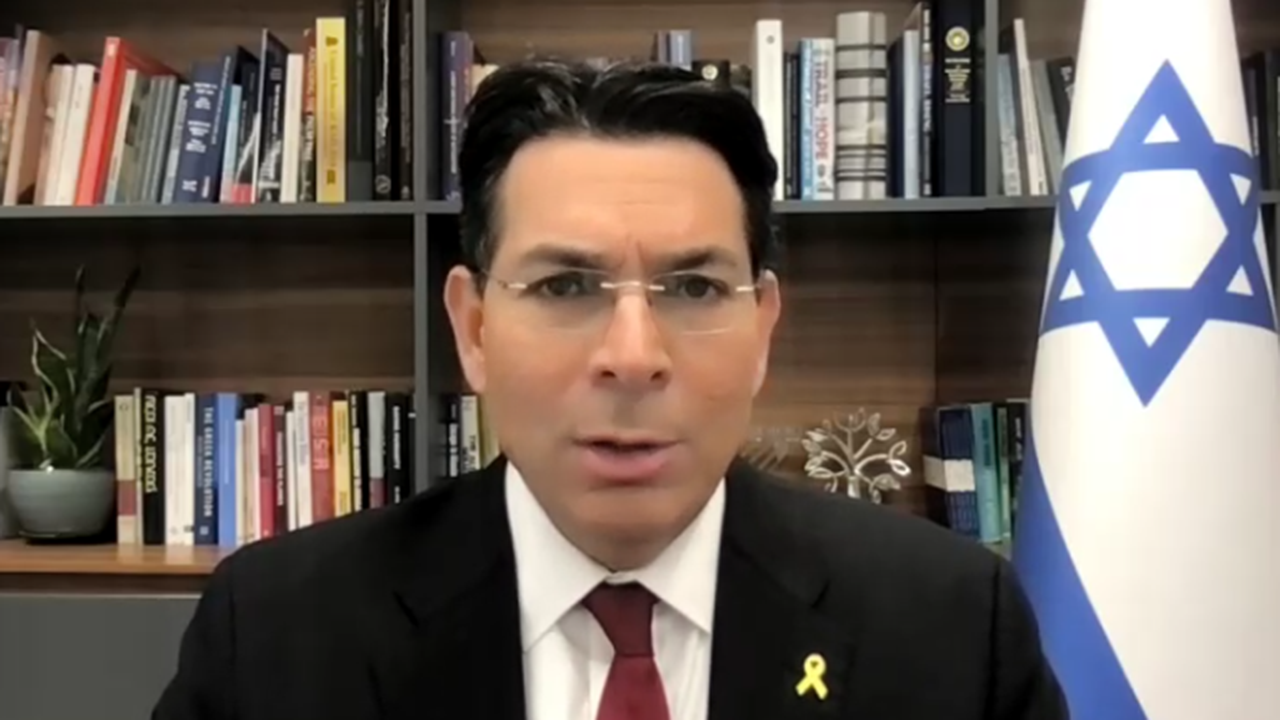
Israel’s U.N. Ambassador Danny Danon tells Fox News Digital that his country is keeping its “eyes open” for any potential aggression from Iran during the Trump transition period, adding it would be a “mistake” for the Islamic Republic to carry out an attack.
The comments come after Iranian Foreign Minister Abbas Araghchi vowed earlier this week that Iran would retaliate against Israel for the strategic airstrikes it carried out against Tehran on Oct. 26. Araghchi was quoted in Iranian media saying “we have not given up our right to react, and we will react in our time and in the way we see fit.”
“I would advise him not to challenge us. We have already shown our capabilities. We have proved that they are vulnerable. We can actually target any location in Iran. They know that,” Danon told Fox News Digital.
“So I would advise them not to make that mistake. If they think that now, because of the transition period, they can take advantage of it, they are wrong,” he added. “We are keeping our eyes open and we are ready for all scenarios.”
ICC REJECTS ISRAELI APPEALS, ISSUES ARREST WARRANTS FOR BENJAMIN NETANYAHU, YOAV GALLANT
Israel’s U.N. Ambassador Danny Danon tells Fox News Digital that his country is “ready for all scenarios” coming from Iran during the Trump transition period. (Fox News)
Danon says he believes one of the most important challenges for the incoming Trump administration will be the way the U.S. deals with Iran.
“Regarding the new administration, I think the most important challenge will be the way you challenge Iran, the aggression, the threat of the Iranian regime. I believe that the U.S. will have to go back to a leading position on this issue,” he told Fox News Digital.
“We are fighting the same enemies, the enemies of the United States of America. When you look at the Iranians, the Houthis, Hezbollah, Hamas, all those bad actors that are coming against Israel… that is the enemy of the United States. So I think every American should support us and understand what we are doing now,” Danon also said.
IRAN HIDING MISSILE, DRONE PROGRAMS UNDER GUISE OF COMMERCIAL FRONT TO EVADE SANCTIONS
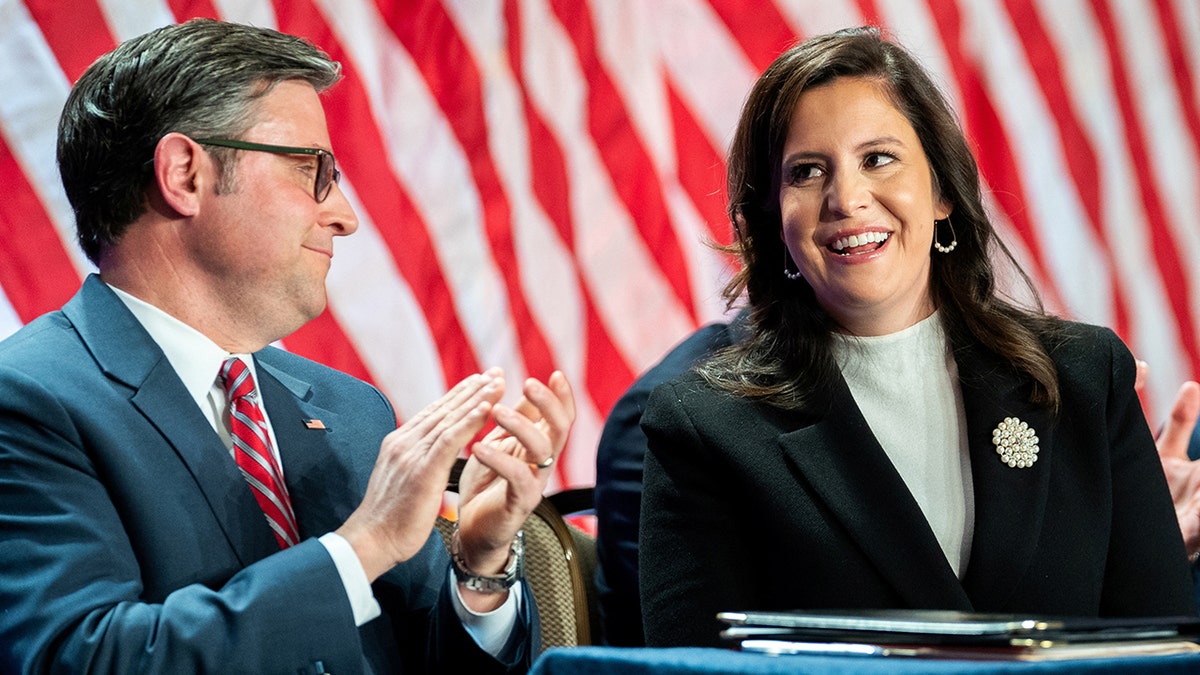
Rep. Elise Stefanik, R-N.Y., is acknowledged by President-elect Donald Trump alongside Speaker of the House Mike Johnson during a meeting with House Republicans at the Hyatt Regency hotel in Washington, D.C., on Nov. 13, 2024. Stefanik has been chosen by President-elect Donald Trump as the next U.S. ambassador to the United Nations. (Allison Robbert/Pool via REUTERS)
Danon spoke as the U.S. vetoed a draft resolution against Israel at the U.N. Security Council on Wednesday.
The resolution, which was overseen by Algeria, sought an “immediate, unconditional and permanent cease-fire” to be imposed on Israel. The resolution did not guarantee the release of the hostages still being held by Hamas within Gaza.
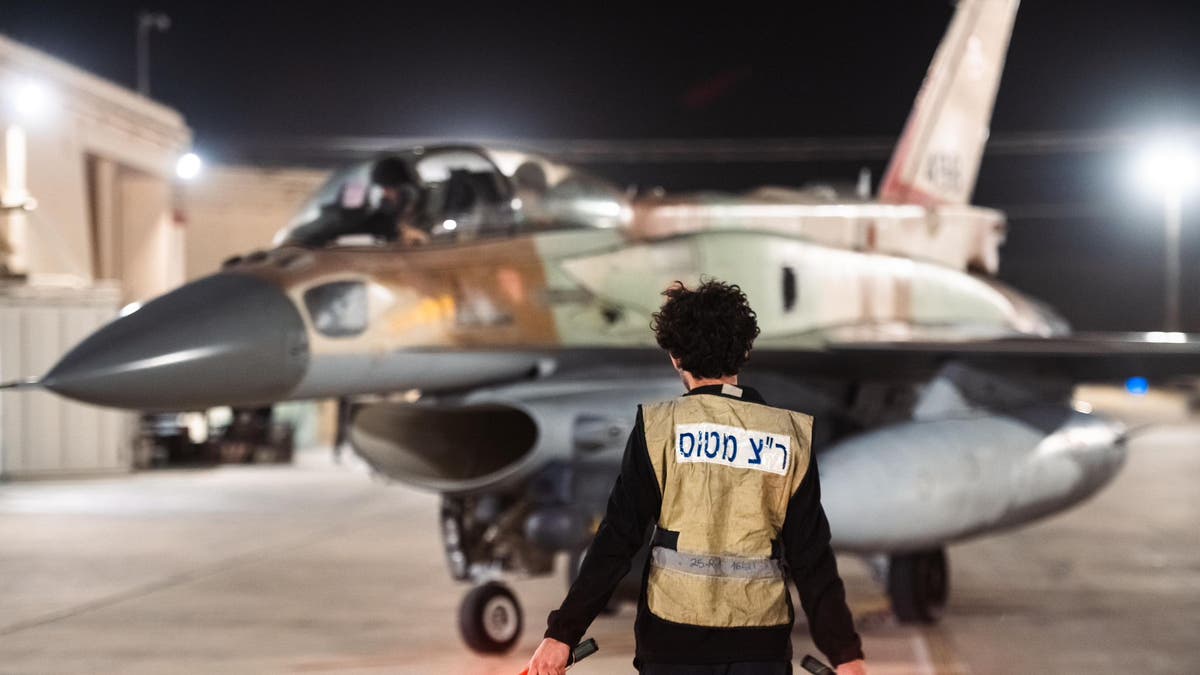
Israeli Air Force planes departing for the strikes in Iran on Oct. 26. (IDF Spokesman’s Unit)
“It was a shameful resolution because… it didn’t have the linkage between the cease-fire and the call [for] the release of the hostages. And I want to thank the United States for taking a strong position and vetoing this resolution,” Danon said. “I think it sent a very clear message that the U.S. stands with its strongest ally with Israel. And, you know, it was shameful, too, to hear the voices of so many ambassadors speaking about a cease-fire but abandoning the 101 hostages. We will not forget them. We will never abandon them. We will continue to fight until we bring all of them back home.”
Fox News’ Benjamin Weinthal contributed to this report.
World
Fact-check: What do we know about Russia’s nuclear arsenal?

Moscow has lowered the bar for using nuclear weapons and fired a missile capable of carrying a nuclear warhead into Ukraine, heightening tensions with the West.
Russia’s nuclear arsenal is under fresh scrutiny after an intermediate-range ballistic missile capable of carrying an atomic warhead was fired into Ukrainian territory.
President Vladimir Putin says the unprecedented attack using the so-called “Oreshnik” missile is a direct response to Ukraine’s use of US and UK-made missiles to strike targets deep in Russian territory.
He has also warned that the military facilities of Western countries allowing Ukraine to use their weapons to strike Russia could become targets.
The escalation comes days after the Russian President approved small but significant changes to his country’s nuclear doctrine, which would allow a nuclear response to a conventional, non-nuclear attack on Russian territory.
While Western officials, including US defence secretary Lloyd Austin, have dismissed the notion that Moscow’s use of nuclear weapons is imminent, experts warn that recent developments could increase the possibility of nuclear weapons use.
Here’s what we know about Russia’s inventory of atomic weapons.
How big is Russia’s nuclear arsenal?
Russia holds more nuclear warheads than any other nation at an estimated 5,580, which amounts to 47% of global stockpiles, according to data from the Federation of American Scientists (FAS).
But only an estimated 1,710 of those weapons are deployed, a fraction more than the 1,670 deployed by the US.
Both nations have the necessary nuclear might to destroy each other several times over, and considerably more atomic warheads than the world’s seven other nuclear nations: China, France, India, Israel, North Korea, Pakistan and the United Kingdom.
Of Moscow’s deployed weapons, an estimated 870 are on land-based ballistic missiles, 640 on submarine-launched ballistic missiles, and potentially 200 at heavy bomber bases.
According to FAS, there are no signs Russia is significantly scaling up its nuclear arsenal, but the federation does warn of a potential surge in the future as the country replaces single-warhead missiles with those capable of carrying multiple warheads.
Russia is also steadily modernising its nuclear arsenal.
What could trigger a Russian nuclear response?
Moscow’s previous 2020 doctrine stated that its nuclear weapons could be used in response to an attack using nuclear or other weapons of mass destruction “when the very existence of the state is put under threat.”
Now, the conditions under which a nuclear response could be launched have changed in three crucial ways:
- Russia will consider using nuclear weapons in the case of a strike on its territory using conventional weapons, such as cruise missiles, drones and tactical aircraft.
- It could launch a nuclear attack in response to an aggression by a non-nuclear state acting “with the participation or support of a nuclear state”, as is the case for Ukraine.
- Moscow will also apply the same conditions to an attack on Belarus’ territory, in agreement with President Lukashenko.
Is there a rising nuclear threat?
The size of the world’s nuclear stockpiles has rapidly decreased amid the post-Cold War détente. The Soviet Union had some 40,000 warheads, and the US around 30,000, when stockpiles peaked during the 1960s and 70s.
But FAS warns that while the overall number is still in decline, operational warheads are on the rise once again. More countries are also upgrading their missiles to deploy multiple warheads.
“In nearly all of the nuclear-armed states there are either plans or a significant push to increase nuclear forces,” Hans M. Kristensen, Director of the Nuclear Information Project at the Federation of American Scientists (FAS), said in June this year.
Is the West reacting?
When Putin approved the updated nuclear protocol last week, many Western leaders dismissed it as sabre rattling.
German Foreign Minister Annalena Baerbock said Germany and its partners would “not be intimidated” and accused Putin of “playing with our fear.”
But since Russia used a hypersonic ballistic missile capable of carrying a nuclear warhead in an attack on Dnipro, European leaders have raised the alarm.
“The last few dozen hours have shown that the threat is serious and real when it comes to global conflict,” Polish Prime Minister Donald Tusk said on Friday.
According to Dutch media reports, NATO’s secretary-general Mark Rutte is in Florida to urgently meet President-elect Donald Trump, potentially to discuss the recent escalation.
NATO and Ukraine will hold an extraordinary meeting in Brussels next Tuesday to discuss the situation and the possible allied reaction, according to Euronews sources.
-
Business1 week ago
Column: OpenAI just scored a huge victory in a copyright case … or did it?
-

 Health1 week ago
Health1 week agoBird flu leaves teen in critical condition after country's first reported case
-

 Business6 days ago
Business6 days agoColumn: Molly White's message for journalists going freelance — be ready for the pitfalls
-
World1 week ago
Sarah Palin, NY Times Have Explored Settlement, as Judge Sets Defamation Retrial
-

 Science3 days ago
Science3 days agoTrump nominates Dr. Oz to head Medicare and Medicaid and help take on 'illness industrial complex'
-

 Politics5 days ago
Politics5 days agoTrump taps FCC member Brendan Carr to lead agency: 'Warrior for Free Speech'
-
/cdn.vox-cdn.com/uploads/chorus_asset/file/25739950/247386_Elon_Musk_Open_AI_CVirginia.jpg)
/cdn.vox-cdn.com/uploads/chorus_asset/file/25739950/247386_Elon_Musk_Open_AI_CVirginia.jpg) Technology4 days ago
Technology4 days agoInside Elon Musk’s messy breakup with OpenAI
-

 Lifestyle5 days ago
Lifestyle5 days agoSome in the U.S. farm industry are alarmed by Trump's embrace of RFK Jr. and tariffs

